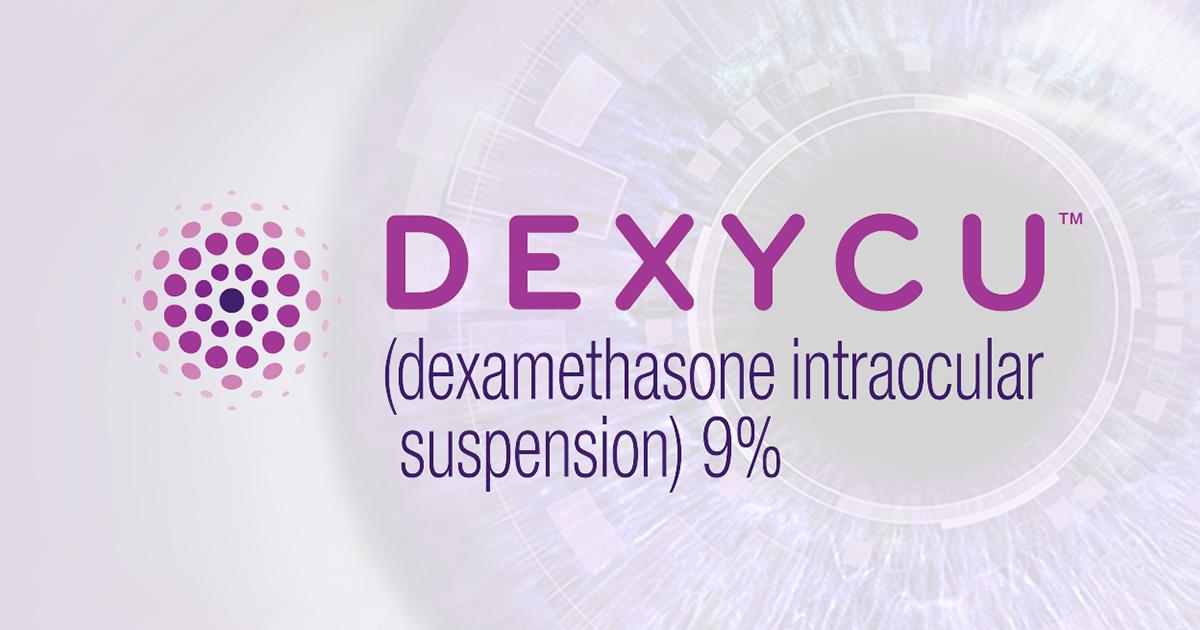Will Dexycu’s Cost Inhibit Its Use?

Eric Donnenfeld, MD, of Ophthalmic Consultants of Long Island, recently performed the first cataract surgery in the country using Dexycu (EyePoint Pharmaceuticals), administered as a single dose, instead of the usual corticosteroid eye drops he sends home with patients to treat their postoperative inflammation. But at a list price about 10 times higher than those drops, can Dexycu find its place in the market? EyePoint thinks it can.
Potential Benefits of Dexycu
Dr. Donnenfeld participated in the Dexycu clinical trial and characterizes his as “a very positive” experience. He notes that the first cases at his surgery center had excellent results.
Dr. Donnenfeld, a consultant for EyePoint, says that while the main advantage of using Dexycu is improved compliance, it also allows for extended release of medicine, and improves the quality of life of patients who don’t really like taking drops. In addition, he points out there’s no surface toxicity because there are no preservatives and the drug is injected into the eye.
Dexycu’s Higher Cost
With commonly used eye drops available at around $60 per bottle, and an injection of Dexycu listing at $595, can the benefits justify the higher reimbursement requests, especially in a time when Medicare is trying to keep prices down?
Nancy Lurker, CEO of EyePoint Pharmaceuticals, states it’s important to remember that what really drives the Medicare cost paradigm are the rare disease drugs and other big-ticket items that cost $50,000 or more. She says of Dexycu’s price, “In the scheme of things, that is still relatively low compared to these other big cost driver drugs that are really what’s putting a burden on the system.”
Sumitra Khandelwal, MD, assistant professor of ophthalmology at the Baylor College of Medicine and medical director of the Lions Eye Bank of Texas, thinks the reimbursement will work if it is equivalent to what the average patient pays for name-brand steroids.
“The issue will be that it’s taking a patient-centered problem and shifting the burden to the surgery centers,” Dr. Khandelwal says. “Patients don’t pay for the drug during cases, and surgery centers don’t handle patient calls or even know what drops cost patients.”
She also believes insurance companies should step up to recognize the benefit of a drop-less postoperative routine, saying, “They should then realize the savings, including fewer drop prescriptions and fewer office visits with rebound inflammation, and cover it in surgery.”
Pass-Through Designation
Lurker explains that to qualify for the Medicare pass-through status that Dexycu has obtained, the drug was required by regulation to be priced above $485. She notes that the intent of pass-through status is to drive innovation for drugs and other new devices. Therefore, the Center for Medicare and Medicaid Services (CMS) wants these products to be priced higher so providers will use them.
Dr. Donnenfeld says that because of the pass-through status, Dexycu is provided without cost to the surgery center or surgeon. So patients who have Medicare are only responsible for the co-pay. If they also have private insurance, there will be no cost to the patient. “For this reason I’m using Dexycu for all of my patients having cataract surgery who currently have Medicare,” he adds. “As private insurance becomes available for Dexycu, we plan on extending the use of Dexycu to other groups of patients in the very near future.”
Medicare is EyePoint’s primary focus for Dexycu for obvious reasons: the program covers 75% to 80% of all cataract surgeries. For patients who can’t afford the drug, EyePoint offers the EyePoint Assist program to help with their ability to pay.
Pass-through status usually ends after three years, unless CMS grants an extension. The hope is that enough doctors have used the product when the status ends that it has become a routine part of surgery.
Staged Rollout
EyePoint is doing a staged rollout of Dexycu, starting with leading cataract surgeons to ensure proper training in the administration of Dexycu. “It’s really a new drug delivery technology, and there is a little bit of a technique to it,” Lurker explains. “Now it’s in its second stage of users, and it’s going quite well; we’re quite pleased.”
The rollout will be done with samples so physicians can practice the delivery. EyePoint also plans to have a password-protected portal where physicians will be able to upload videos to show how it’s being done.
Contact steve@healthegy.com with any questions.
